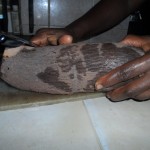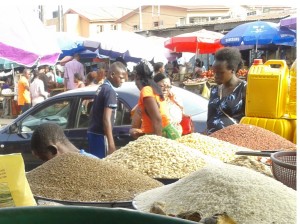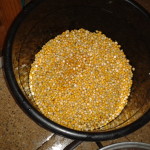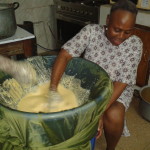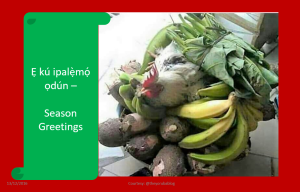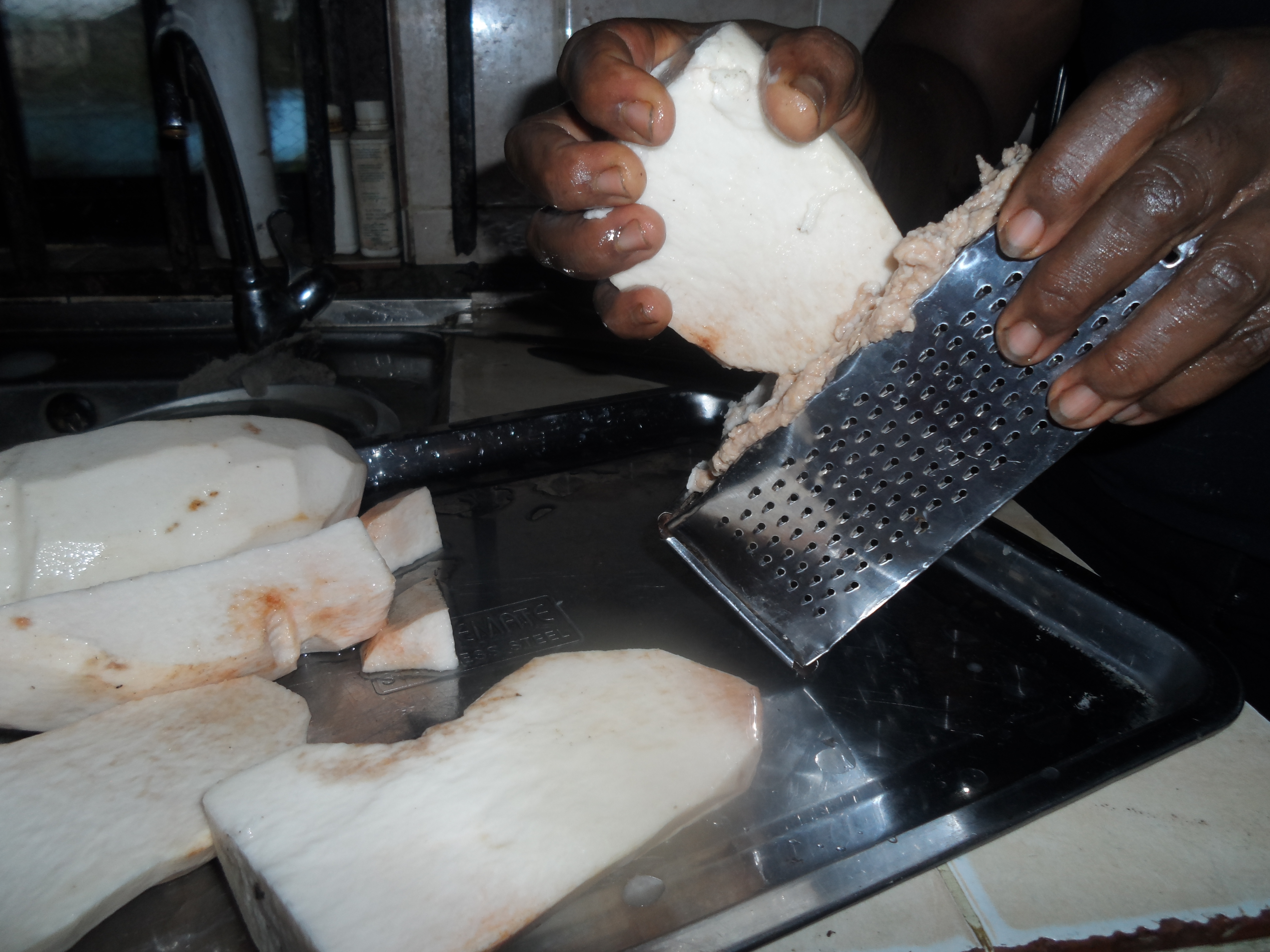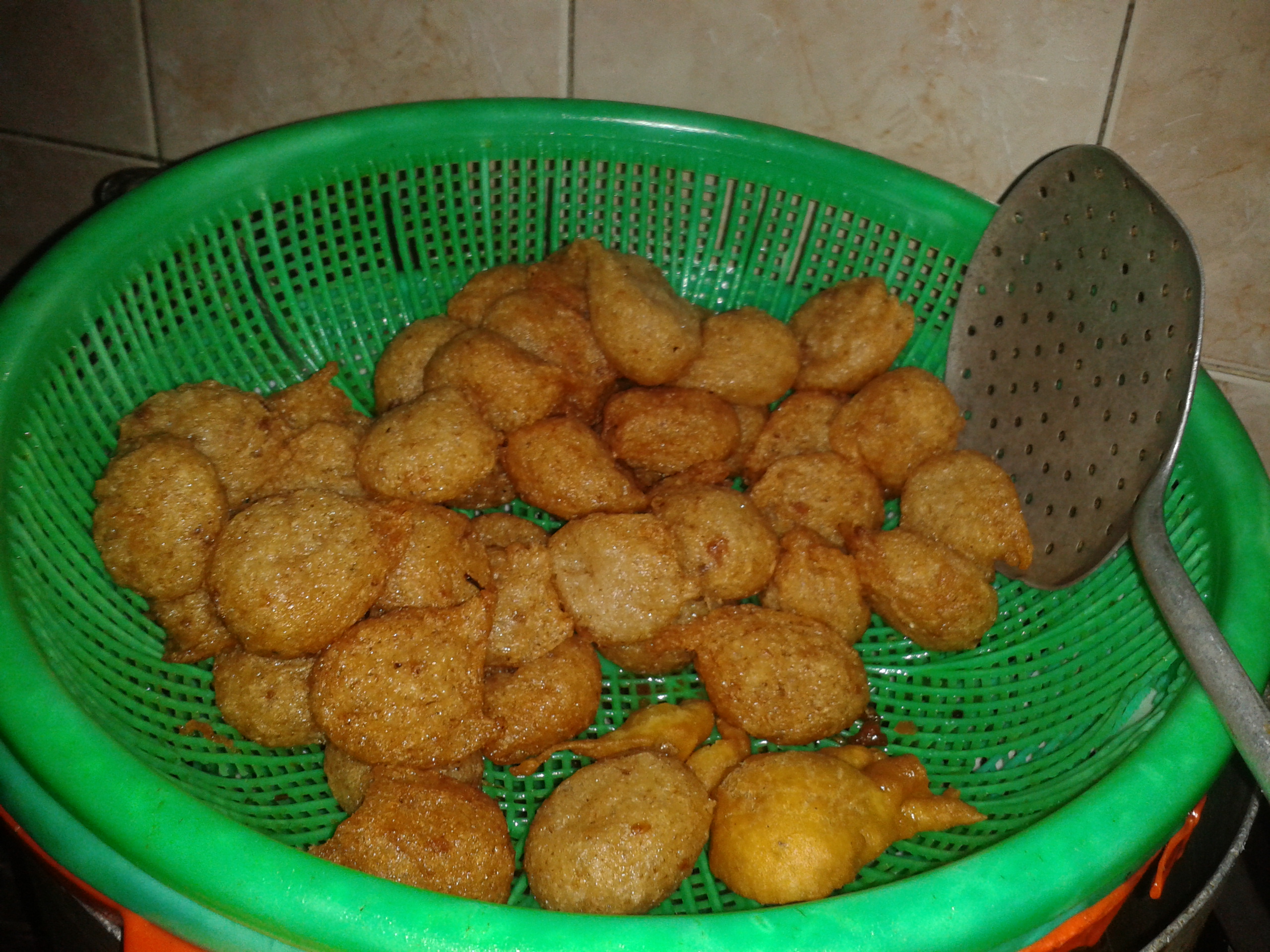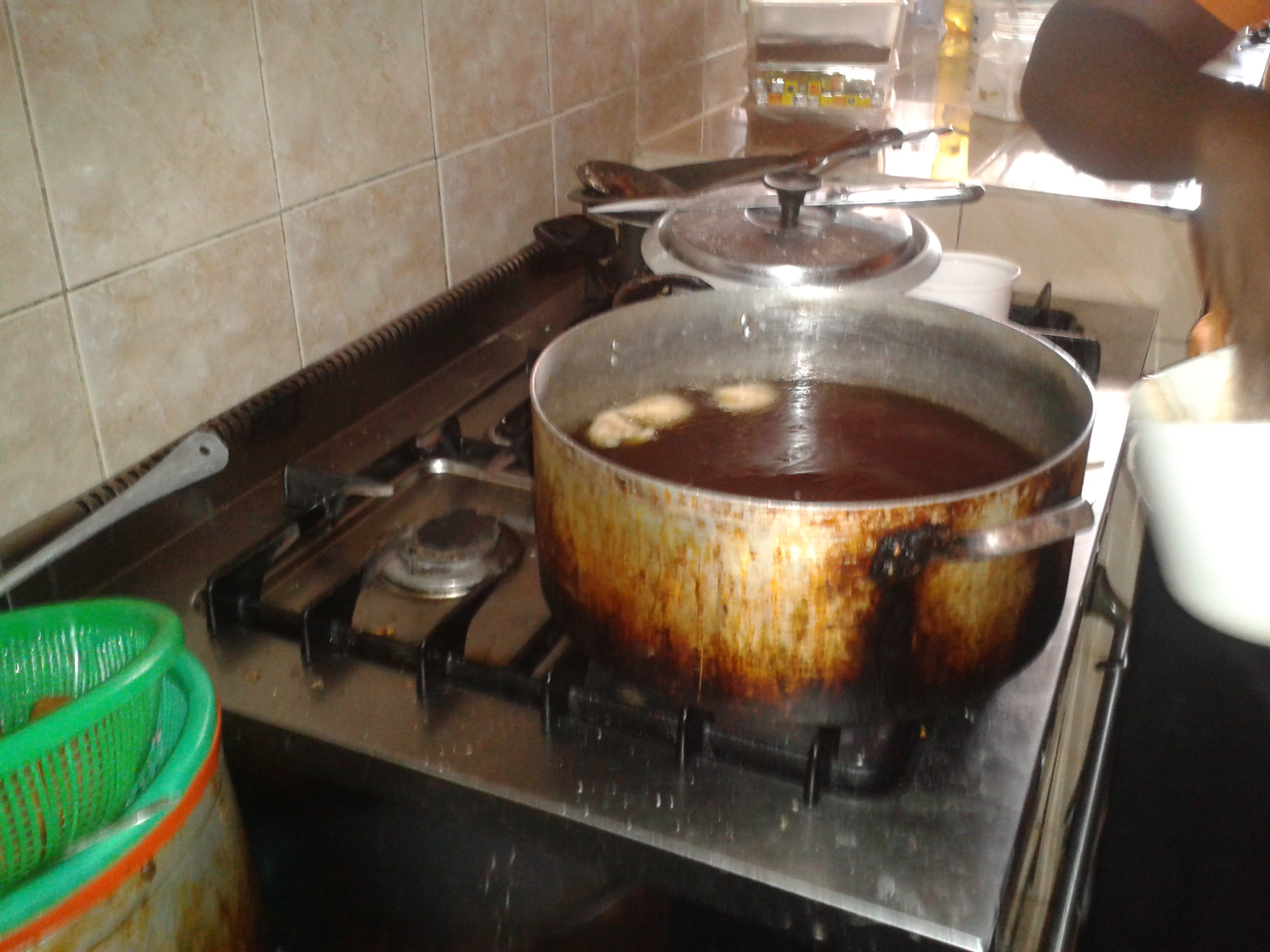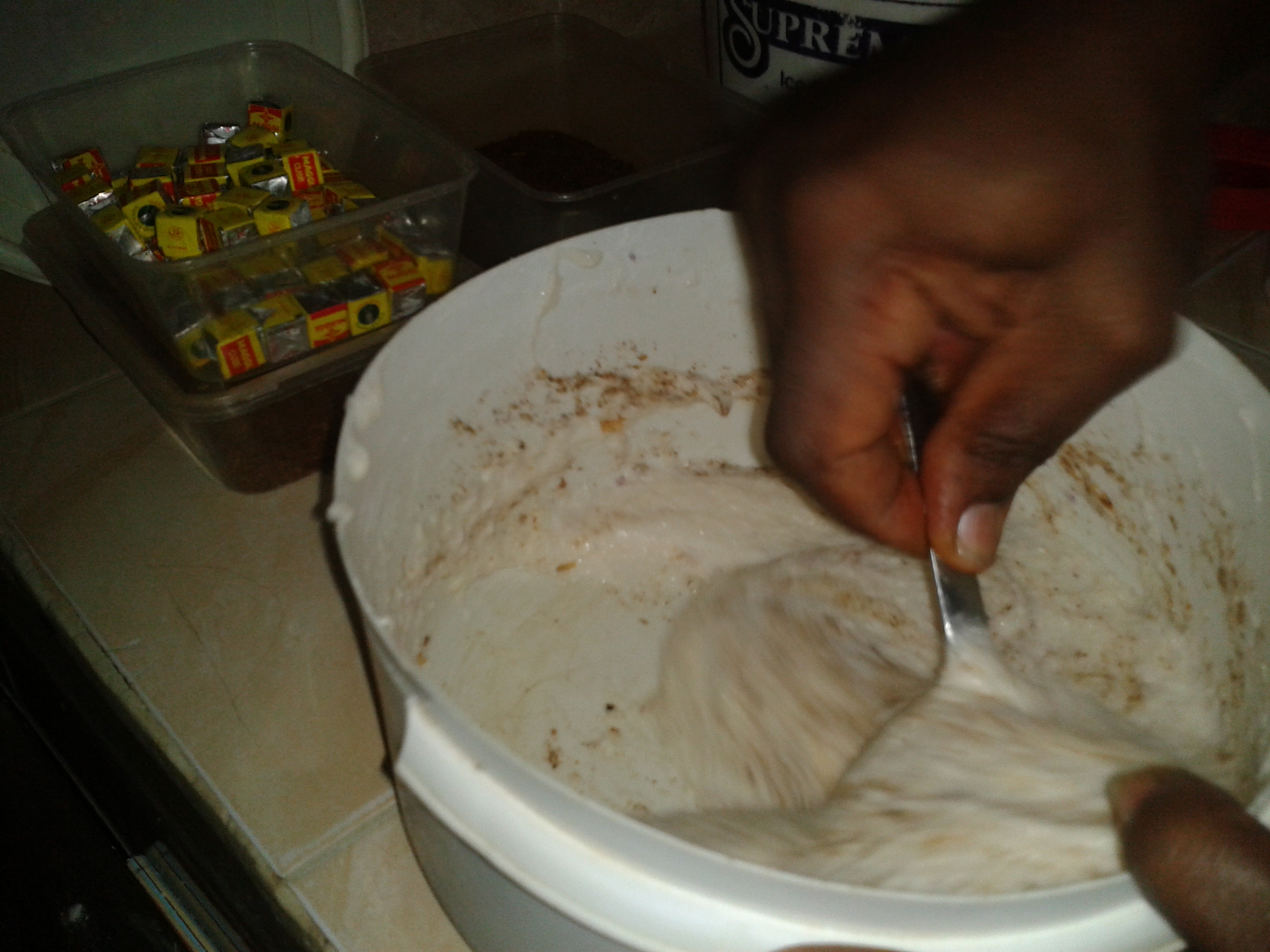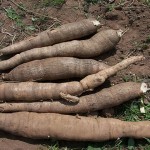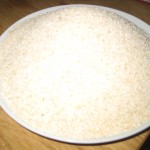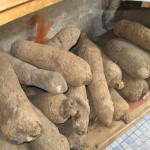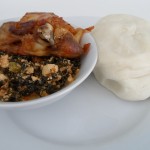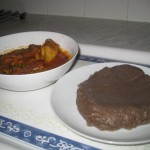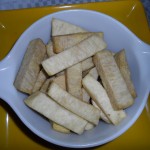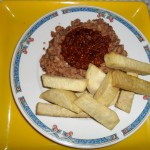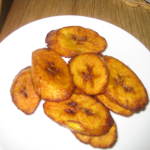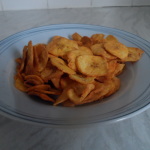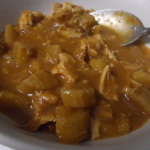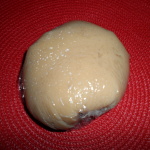Ọbẹ̀ àpọ̀n jẹ́ ọbẹ̀ yíyọ̀ bi ọbẹ̀ ilá, ṣùgbọ́n fún ẹni ti kò bá mọ̃ se, kò ni yọ̀. Ọbẹ̀ ti enia lè yára sè ju ọbẹ̀ ilá ni, nitori bi a bá ni àpọ̀n kíkù nile, a din àkókò ti ó yẹ ki enia fi rẹ́ ilá kù. Ọbẹ̀ ti a lè fi owó díẹ̀ sè ni.
Ọ̀rọ̀ Yorùbá ti ó ni “Ẹ jáwọ́ lápọ̀n ti kò yọ̀, ẹ lọ dá omi ilá kaná” jẹ́ ọ̀rọ̀ ìyànjú fún ẹni ti ó ba ńṣe iṣẹ́ ti kò ni èrè tàbi ilọsiwájú, pé ki irú ẹni bẹ gbiyànjú àti ṣe iṣẹ́ miran ki ó má ba fi àkókò ṣòfò. Ẹ yẹ èlò àti sise ọbẹ̀ àpọ̀n ni ojú iwé yi.
Èlò fún ikòkò Ọbẹ̀ Àpọ̀n: Ingredients for the wild-mango seed soup
-
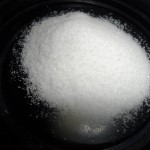
-
Iyọ̀ – Salt. Courtesy: @theyorubablog
-

-
Ata Ata-gigún – Ground Pepper. Courtesy: @theyorubablog
-
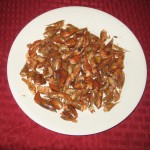
-
Edé pupa – Dry Prawns. Courtesy: @theyorubablog
-
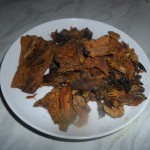
-
Ẹja gbígbẹ – Dry Fish. Courtesy@ @theyorubablog
-

-
Omi – Water. Courtesy: @theyorubablog
-
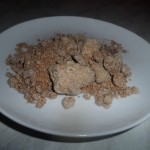
-
Àpọ̀n – Wild mango seed powder. Courtesy: @theyorubablog
Epo-pupa – Ṣibi ijẹun mẹfa Palm Oil – 6 Table Spoons
Ata-gigún – Ṣibi ijẹun kan Ground Pepper – 1 Table Spoon
Iyọ̀ – Ṣibi ijẹun kékeré kan Salt – 1 Teaspoon
Iyọ̀ ìgbàlódé – Sibi ijeun kan tabi horo meji Seasoning Salt – 1 Table Spoon or 2 Cubes
Irú – Ṣibi ijẹun meji Locust Beans seed – 2 Table Spoons
Edé – Ṣibi ijẹun mẹfa Dry Prawns/Crayfish – 6 Table Spoons
Omi – Ìgò omi kan Water – 1ltr bottle
Ẹran bí-bọ̀ tàbi din-din, Ẹja tútù tàbi gbígbẹ, Cooked/fried meat, Fresh/Dry Fish, Cow skin,
Pọ̀nmọ́, Ṣàki àti bẹ̃bẹ lọ Tripe etc.
ENGLISH TRANSLATION
The wild-mango seed soup is a kind of slimy soup just like okra, but for someone who does not know how to prepare it, it would not be slimy. It is easy and quick to prepare because once you have the ground powder, it saves the time spent on slicing the okra. It can be prepared on a minimal budget.
The Yoruba adage that said “Stay off cooking a non-slimy wild-mango seed powder, and prepare for okra” can be used to advise someone doing a non-progressive or non-profitable job to try another venture in order not lose out completely. Check the ingredients and the preparation of the wild-mango seed powder on this page.
Originally posted 2014-02-22 01:38:39. Republished by Blog Post Promoter





